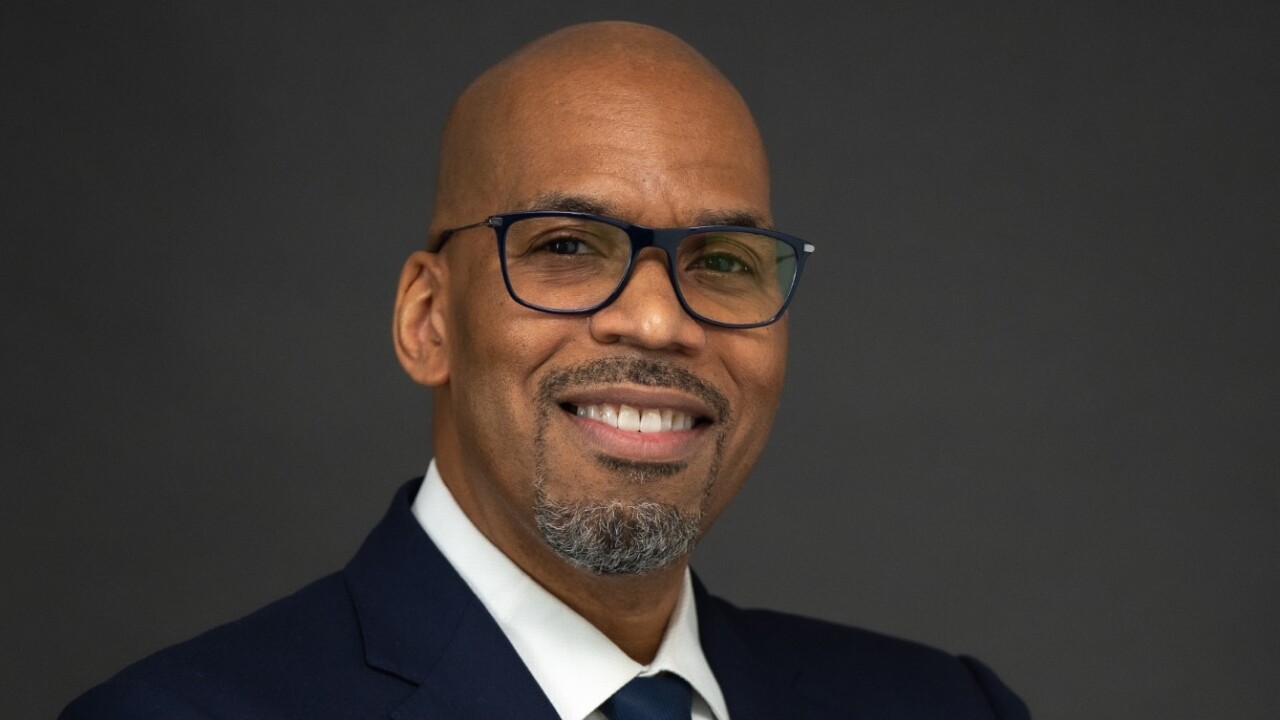IMGCAP(1)]April is National Financial Literacy Month, and in recognition of the importance of the topic New York-based CPA John Vento is partnering with members of Congress from the Financial and Economic Literacy Caucus to speak at high schools and universities in the New York metropolitan area.
“We have already spoken at several colleges and a number of high schools, and are scheduling more during the remainder of April,” said Vento. “I am passionate about the subject of financial literacy and believe the way to rebuild our economy is by changing the behavior and attitude of our citizens one at a time. Furthermore, there is no better time to deliver this message than before they graduate and join the workforce.”
A broader goal of the activities is to make financial literacy an educational requirement in the nation’s schools, he noted.
“I truly believe the most dangerous threat to our nation and its citizens is a lack of financial literacy,” said Vento. “Americans still struggle to make wise financial decisions because these concepts are not a focus in our education system, so when we reach adulthood, it’s either sink or swim—and too often we make bad financial decisions and suffer the consequences later in life.”
“Our educational system devotes a considerable amount of attention to teaching students about the dangers of drinking and driving, using drugs, and practicing safe sex,” Vento added. “But, unfortunately, the topic of financial literacy is largely ignored. Throughout our lives, we will encounter many questions and problems relating to money, but every one of them will fall, in some way, under one or more of 10 financial literacy lessons.”
The curriculum that Vento advocates should be a core component of the requirements to graduate, he urged, “so that students will be better prepared to deal with the financial realities of life.”
Where possible, accountants should be advocates of financial literacy for their younger clients and children of clients. The following lessons can be used as a template for discussing the topic.
Lesson 1: Live within your means. “Living within your means is living on less than your take-home salary and any other resources you receive, such as income from an annuity or a trust,” said Vento. “It means not only figuring out how to pay for your needs and wants, but budgeting our income so that you still have a little money left over.”
Lesson 2: Understand taxes. “The average American family pays more than one-third of its income in federal, state, and local income taxes—and even more in property taxes, excise taxes, sales taxes and other hidden taxes. For just about everyone, taxes are our biggest personal expense, by far.”
Lesson 3: Determine your financial position. “This does not mean simply knowing your annual salary or identifying how much you take home in every paycheck, although that is definitely part of it,” said Vento.
“In order to live within your means, you must have a precise understanding of your financial assets, liabilities, and net worth by preparing a Statement of Financial Position,” he said. “You also need to know—and to track on a regular basis—where all your personal funds are coming from and going to. This is your Statement of Cash Flow. Finally, after taking a careful look at your current financial position, you must determine your financial goals, whether for five years, 10 years, or throughout your retirement years. Only then can you realistically budget for the future—and, of course, reach Point X, or financial independence.”
Lesson 4: Manage debt. For many people, debt is a scary concept, Vento noted. The fact is there is good debt and there is bad debt. Understanding the difference is imperative to becoming financially literate and financially independent. Basically, good debt is money that people borrow for purchases and situations that, in the long term, will help them amass wealth and ultimately reach financial independence. Some examples of good debt include student loans, business loans, certain investment asset loans and some personal-use asset loans (such as an affordable home mortgage). In contrast, bad debt is money that people borrow (usually on a credit card) for the purchase of nonessential expenditures as well as many personal-use assets.
“When you do not use debt properly, that can lead to significant financial hardship and can prevent you from ever becoming financially independent,” said Vento. “However, when you use debt to leverage yourself in the pursuit of accumulating wealth, it can be a very powerful tool.”
Lesson 5: Insure your health and life. Even a sound, carefully planned investment strategy can fall apart if you have not prepared properly for unforeseen problems concerning health and life. “If clients or a member of their family is hit with a prolonged illness, a severe injury, a disability or death (especially of the primary wage earner), the planning and investing they have so carefully developed can quickly disintegrate,” said Vento.
Lesson 6: Protect property with insurance. Protecting property by implementing the proper risk management strategies is critical to achieving and maintaining financial independence. “The type and extent of insurance needed will change throughout a client’s lifetime, as will the types of assets and the extent of wealth they have accumulated. The three major personal property risk management issues include homeowner’s insurance, automobile insurance and umbrella liability insurance,” Vento advised.
Lesson 7: Pay for college. Many people, parents especially, worry about covering the ever-growing expense of getting a college education. “Of course, it’s possible to get academic or athletic scholarships or grants,” said Vento. “But most young people will need additional funds, either from their parents’ savings or through student loans.”
“With the skyrocketing cost of college, it’s important that you start planning early,” Vento added. “Parents and rising college students should take advantage of college savings programs such as Internal Revenue Code Section 529 plans, Coverdell Education Savings Accounts, savings bonds, financial aid (such as federal grants, loans and scholarships), as well as education tax deductions and credits. Understanding how scholarships, government grants and student loans can help is essential.”
Lesson 8: Plan for retirement. Everyone should be planning financially for retirement, regardless of how old or young they are. That’s especially important, given that people coming into retirement are facing concerns that retirees did not face 20 or 30 years ago, including living longer and supporting themselves throughout turbulent financial times.
“The longer a person waits to start saving for retirement, the harder it will be to accumulate the amount they need to be financially independent,” said Vento. “Remember, one of the most valuable investment assets you have is time; the more years you save, the greater your chance of financial success. By far the easiest way to do this is by contributing to your employer’s retirement plan, or if that is not available, to an IRA. Implement a retirement saving strategy that allocates a specific dollar amount or percentage—I recommend at least 10 percent—of your salary every pay period. Therefore, you are paying yourself first, as though saving for retirement is your number one required expense. In fact, saving for retirement is not an expense because it adds to your investable assets, but treating it as such is of utmost importance to your success.”
Lesson 9: Manage your investments. The rewards of proper investing can be very generous when investors adopt an investment discipline that allows them to purchase quality investments and then allows those investments to take their course, according to Vento.
“It is critically important that you select an investment model that you are willing to stay with, even in the worst of markets,” Vento noted. “The appropriate investment plan for you should be the one that provides you with the highest potential rate of return in the long run that is within your risk tolerance.”
Lesson 10: Preserve your estate. If you do not take the necessary steps to preserve your estate, unintended beneficiaries may take a significant amount of your estate instead. These unintended beneficiaries include the federal and state governments, the state administrator, attorneys and perhaps even relatives you have not spoken to in decades. The money you may spend today on a qualified estate attorney may save your estate significant dollars in both estate taxes and administrative costs down the road.
“It is critically important that people of all ages understand these 10 lessons and work within them productively—that they become financially literate,” Vento concluded. “But if we help younger generations avoid the bad habits that have crept into the way so many Americans manage their finances today, we really have a great opportunity to set them up for a brighter future. And when they are more prosperous, the economy as a whole will be more prosperous.”





